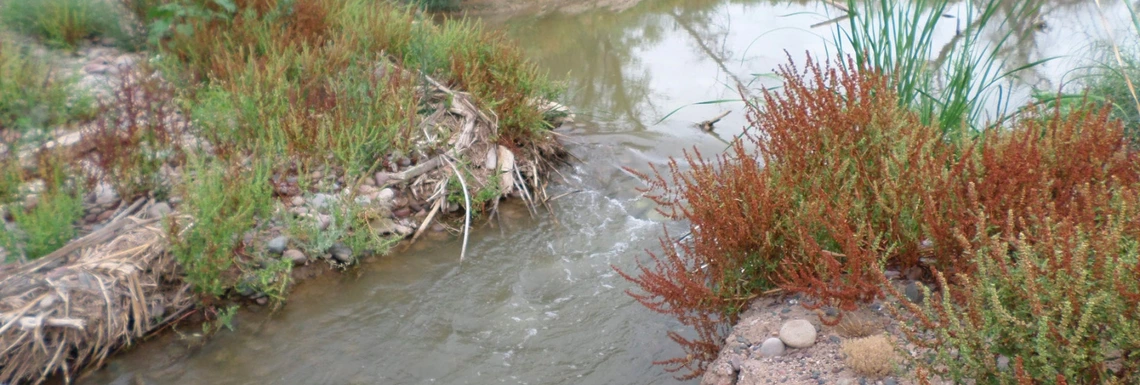Water Rights Webinar Sets Stage for Conference
Aug. 20, 2021
Image

 On August 13, the WRRC held the pre-conference webinar, Tribal Water Rights and Settlements, to provide legal context for the broader discussions of Tribal water resilience to take place at the WRRC’s upcoming virtual conference, August 30 – September 1. The webinar featured Tribal water attorneys Heather Whiteman Runs Him, Director of the Tribal Justice Clinic, Margaret Vick, Special Counsel for Water Resources, and Robyn Interpreter, Founding Partner of Montgomery & Interpreter, PLC.
On August 13, the WRRC held the pre-conference webinar, Tribal Water Rights and Settlements, to provide legal context for the broader discussions of Tribal water resilience to take place at the WRRC’s upcoming virtual conference, August 30 – September 1. The webinar featured Tribal water attorneys Heather Whiteman Runs Him, Director of the Tribal Justice Clinic, Margaret Vick, Special Counsel for Water Resources, and Robyn Interpreter, Founding Partner of Montgomery & Interpreter, PLC.
Heather Whiteman Runs Him began her presentation with a historical overview of Tribal Reserved Water Rights, describing the cases that establish the legal framework that support the rights of Native nations to water. She went on to note the growing importance of groundwater in fulfilling Tribal water rights, highlighting an ongoing case involving the Agua Caliente Band of Cahuilla Indians in the Coachella Valley. Margaret Vick then focused the discussion on the quantified rights of Tribes on the main stem of the Colorado River and the “practicably irrigable acreage” standard of determining rights established by the 1963 Supreme Court case Arizona v. California. Vick also gave a comprehensive overview of the Tribal water rights implications of Colorado River shortage declarations, the Drought Contingency Plan, and future consultations.
In the third presentation, Robyn Interpreter continued the discussion to cover Tribal water adjudications and settlements of Tribes in the interior of Arizona, noting the importance of the interconnections between on-river Tribes and those in the interior or the state. She reviewed the current status of settlements in Arizona and some of the challenges to obtaining a settlement as well as challenges Tribes face post-settlement.
The highly informative presentations ended with a dynamic discussion where the audience had the opportunity to engage with the speakers through a Q&A period. With this comprehensive overview of the legal landscape, webinar attendees were primed for the in-depth discussions and presentations planned for the virtual conference. The three-day program is composed almost entirely of Native voices, Tribal leaders, emerging water professionals, advocates, and the bearers of traditional knowledge who will speak from their unique viewpoints to the many aspects of Tribal water resilience.
Banner Photo: Pee Posh Wetlands, Sharon B. Megdal

